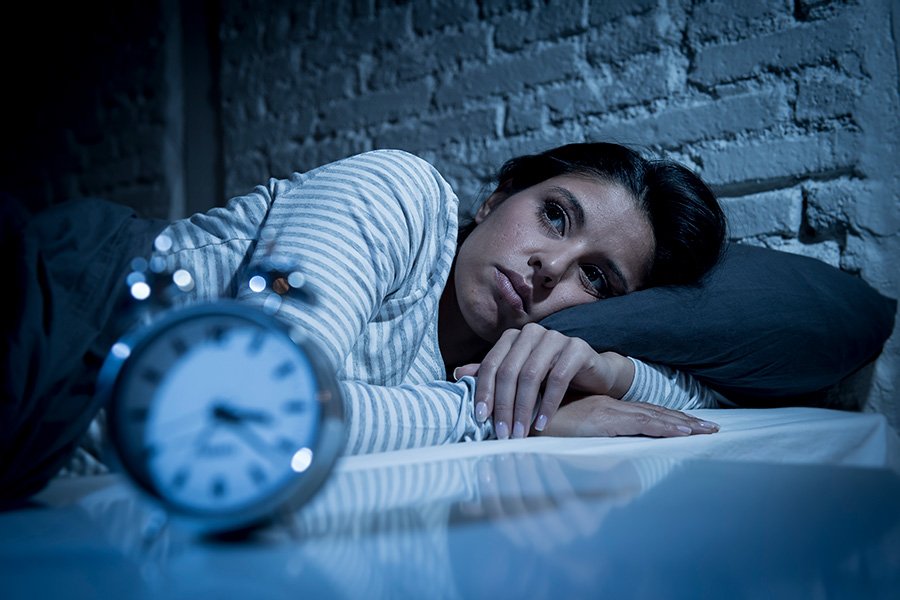Stress and insomnia often go hand in hand, creating a vicious cycle that can affect your physical and mental well-being. While stress is a natural response to life’s challenges, when it becomes chronic, it can lead to serious health issues, including sleep disturbances. Understanding the connection between stress and insomnia is essential for anyone looking to break this cycle and improve their overall quality of life.
Understanding Stress and Its Impact on the Body
Stress is the body’s natural reaction to perceived threats or challenges. In short bursts, stress can be beneficial, heightening alertness and performance. However, when stress becomes prolonged, it can have a negative impact on both the body and mind. Prolonged stress can trigger various physical symptoms, including headaches, muscle tension, digestive issues, and a weakened immune system. It also has a significant effect on the brain, particularly the areas responsible for emotions, memory, and decision-making.
When stress becomes chronic, the body’s “fight-or-flight” response remains activated, keeping the body in a constant state of heightened alertness. This hyperactivation can lead to sleep problems, as the body struggles to switch into a state of relaxation necessary for sleep. This is where the link between stress and insomnia disorder begins to form.
How Stress Leads to Insomnia
Insomnia is a condition characterized by difficulty falling asleep, staying asleep, or waking up too early without being able to go back to sleep. While there are numerous factors that can contribute to insomnia, stress is one of the primary culprits.
1. Hyperactive Mind
When you’re stressed, your mind tends to race with thoughts about work, relationships, finances, or other concerns. This constant stream of thoughts makes it difficult to “turn off” your mind at night. For many people, the inability to quiet their thoughts can make falling asleep nearly impossible. Even if you do manage to fall asleep, the persistent worry and anxiety can lead to frequent awakenings throughout the night.
2. Physical Arousal
Stress triggers the release of stress hormones like cortisol and adrenaline. These hormones prepare the body for immediate action by increasing heart rate, blood pressure, and respiration. While this is useful in a moment of danger, it is less helpful when trying to rest. The heightened state of arousal makes it harder for the body to relax and fall into a deep, restorative sleep.
3. Disrupted Sleep Cycles
Chronic stress can also interfere with the body’s natural circadian rhythm, which regulates sleep-wake cycles. Stress-induced disruptions can cause you to have difficulty falling asleep at night, waking up frequently, or feeling unrested upon waking. As a result, you may find yourself stuck in a cycle where stress and poor sleep feed off each other, worsening both conditions.
The Vicious Cycle: Stress and Sleep Deprivation
When stress and insomnia interact, it can create a harmful cycle. Lack of sleep due to insomnia can lead to increased stress levels, making it even harder to sleep the next night. The effects of sleep deprivation on the body can also exacerbate the physical and mental symptoms of stress, further intensifying the problem.
1. Increased Sensitivity to Stress
Sleep deprivation makes the brain more sensitive to stressors. After a night of poor sleep, you’re more likely to overreact to stress, perceiving minor issues as major problems. This heightened sensitivity can intensify feelings of anxiety, making it even harder to fall asleep the following night.
2. Cognitive Impairments
Sleep is critical for cognitive functions such as memory, decision-making, and problem-solving. When you don’t get enough sleep, your ability to think clearly and manage stress is impaired. This can lead to more stress throughout the day, as you’re unable to cope effectively with the challenges that come your way. This, in turn, can lead to more insomnia as your stress levels increase.
3. Emotional Instability
Lack of sleep can cause mood swings, irritability, and heightened emotional sensitivity. When you’re emotionally unstable, it can be harder to manage stress, creating a snowball effect that makes both insomnia and stress worse. A restless mind and heightened emotions make it more difficult to wind down and fall asleep.
The Long-Term Consequences of Chronic Stress and Insomnia
When the stress-insomnia cycle continues for a prolonged period, it can have serious long-term consequences for both physical and mental health. Chronic stress and sleep deprivation have been linked to a range of health issues, including:
Increased risk of heart disease
Weakened immune function
Higher risk of depression and anxiety disorders
Impaired memory and concentration
Reduced productivity and performance
Both stress and insomnia can significantly reduce your quality of life, leading to a state of constant exhaustion, low energy, and poor mental health. Over time, this can make it even harder to manage stress and maintain a healthy sleep routine, perpetuating the cycle.
Strategies to Break the Stress-Insomnia Cycle
While the connection between stress and insomnia can seem overwhelming, there are several strategies you can use to break this cycle and improve both your sleep and overall well-being. Some effective strategies include:
1. Practice Relaxation Techniques
Relaxation techniques such as deep breathing, meditation, and progressive muscle relaxation can help calm the mind and body. Practicing these techniques before bed can help reduce stress and prepare your body for sleep.
2. Create a Sleep-Friendly Environment
Make your bedroom a peaceful retreat. Keep the room cool, dark, and quiet. Consider using earplugs or a white noise machine to block out external noises that may disturb your sleep. Limiting the use of electronic devices before bed can also help reduce the amount of blue light you’re exposed to, which can interfere with sleep.
3. Set a Sleep Schedule
Going to bed and waking up at the same time every day can help regulate your sleep-wake cycle. Consistency can improve sleep quality and reduce the effects of stress on your body.
4. Exercise Regularly
Regular physical activity has been shown to reduce stress and improve sleep quality. Just be sure to avoid intense exercise close to bedtime, as it could have the opposite effect by increasing alertness.
5. Seek Professional Help
If stress and insomnia symptomsare affecting your daily life and well-being, it may be time to consult a healthcare professional. Cognitive behavioral therapy for insomnia (CBT-I) and other forms of therapy can help address the underlying causes of your sleep problems and provide long-term relief.
Conclusion
The link between stress and insomnia is undeniable. Stress can interfere with sleep, and lack of sleep can worsen stress, creating a damaging cycle that affects both your mental and physical health. Understanding this relationship is the first step toward breaking free from this cycle. By implementing healthy sleep habits and stress management techniques, you can restore balance to your life, improve your sleep, and regain control over your stress levels.








Leave a Reply